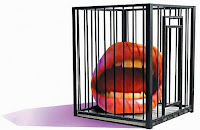South Africa soon to experience its own Body Snatchers
 |
| John W. Whitehead |
"Yet even in our present police state, with our lives and bureaucratic structure now oriented around a fear of the next terrorist attack, the underlying principle remains the same as it was over 50 years ago--namely, can we hold onto our basic freedoms and avoid succumbing to the soul-sucking dredge of conformity that threatens our very humanity?Continue John Whitehead's article here.
"This question is at the heart of director Don Siegel's 1956 classic Invasion of the Body Snatchers, a film that not only captured the ideology and politics of its day but remains timely and relevant as it relates to the worries that plague us today.
"Central to the film is one key speech by Bennell. While hiding from the aliens, he says, 'In my practice, I see how people have allowed their humanity to drain away...only it happens slowly instead of all at once. They didn't seem to mind.... All of us, a little bit. We harden our hearts...grow callous...only when we have to fight to stay human do we realize how precious it is.'
"As Siegel makes clear, it is not the Communists or terrorists who are the villains: We are the villains. In this way, Body Snatchers identifies the real demons at work then and now. Communism at the time was largely a convenient scapegoat, a boogeyman reflecting the fears and tensions of those in power. 'If the pods in Invasion seem to incarnate the popular image of a communist totalitarian state,' Al LaValley writes in his book on the film, 'it is only because the government-dominated, bureaucratic, and conformist fifties was itself creating an America like this picture of Soviet Russia.'
"The only resistance to the perceived repression, Body Snatchers tells us, is an embattled individualism. There is hope in the defiant individual. The conflict between society and the individual is a perpetual one. And the villains are not so much on the other side of the world as all around us. The real enemy, therefore, is invasive governmental measures--something we now see happening across the country--and, thus, totalitarian conformity. And resistance must be against all government measures that threaten our civil liberties and against all kinds of conformity, no matter the shape, size or color of the package it comes in. If not, the enemy lulls us into giving up our individuality."
Right here in South Africa it seems that our very own government is also on a path of becoming invasive on several fronts.
Just recently, RICA became law in which all cell phone users have to register their SIM cards, apparently to fight crime. However, the more likely reason is so that they could become more invasive in the lives of South African citizens.
Now, it seems on the face of it that the South African government is intent on limiting freedom of speech (FoS).
The Mail&Guardian writes:
"[If] this Bill in its current form becomes law and if other initiatives aimed at unduly reining in the media — such as the proposed media tribunal — become a reality, this free flow of information will be stemmed. Not only will the lifeblood of the media be cut off, but also the lifeblood of democracy itself.
No more free speech!
"Proponents of the Bill have posed what they regard as fundamental dichotomies: personal dignity versus unfettered flow of information, the broad national interest versus the right to know, as enshrined in the Constitution.
"This way of seeing the matter echoes the way a reactionary United States has typified it post-9/11: national security versus civil liberties.
And so, the question becomes: How to balance these competing interests?"
M&G gets it! In a democratic society, you cannot with the one hand give people freedom of speech and then take it away with the other, as if the one hand does not know what the other is doing! Democracy is wholly dependent on free speech and the free flow of information.
The problem with any government, is that as soon as the government starts intervening in the area of the free flow of information (FFOI), it is usually (read: almost always) because the current government (political party in charge) does not like what is being said about them. When it comes to the ANC, that is exactly the case. The ANC does not have the social make-up or maturity to handle criticism well. In fact, almost all criticism is tagged by the ANC with the "racism" tag. That has been their response to criticism since the beginning of "democracy" in South Africa. What better way to curb criticism, than by a tribunal that can slap the media over the knuckles!
Concerning the ANC's new idea of curbing FoS and FFOI, Harvey Tyson, Rex Gibson and Richard Steyn (all former newspaper editors) said:
"[T]here are signs now that all media may be under dire threat once more. The threat is naïve, but dangerous. It appears to come in an uninformed attack by a few legislators who don't like criticism."A government that does not like, and cannot handle, criticism, soon turns into a totalitarianism.
It is up to the citizens of South Africa, all of us, to remain vigilant so that government does not steal our freedom while we think everything looks good and rosy. It is like the proverbial "calm before the storm." Usually, when everything seems so good, we relax simply because there it doesn't seem like there is anything to stand against. It is usually during these times that the enemy, or government (however you want to see it), is busy cooking up their next scheme.
Well, that scheme has arrived! The South African government has put forward an amendment bill that would effectively destroy ICASA's independence from government interference. Philip Rosenthal from ChristianView Network just this week sent out the following communique on the proposed amendment concerning ICASA:
| PLEASE WRITE TO OPPOSE ICASA AMENDMENT BILL The government is proposing a new Bill that would effectively destroy the independence of ICASA, which is the regulatory authority for broadcasting. At present, ICASA (The Independent Communications Authority of South Africa) is a buffer between government and Christian broadcasters. If this happens it would enable the government to pressure on Christian broadcasters to promote or at least not speak against government policy and thus muzzle our independent Christian voice, because ICASA decides who gets radio licenses. If the bill becomes law, the Department of Communications would control ICASA which would then undermine the independence of our Christian radio stations. Please email lerato@doc.gov.za to ask for ICASA to stay independent and for more time for us to comment on the ICASA Amendment Bill. Government calls for comment on ICASA Amendment Bill http://www.doc.gov.za/images/stories/1-33324%2025-6%20com.pdf Many others in the secular community are also opposing this bill because it would undermine political and media freedom. http://www.bizcommunity.com/Article/196/15/50220.html Yours sincerely, Philip Rosenthal ================================ ChristianView Network Tel/fax: +2721 6854500 Mobile: +2782 6768966 Email: mail@ChristianView.org Mail: Postnet 114, P/Bag X18, Rondebosch, 7701, South Africa Web: www.ChristianView.org Donate: www.ChristianView.givengain.org ================================ |
 |
| Don't ever lose your free speech! |
Remember, it is much more difficult to reinstate a freedom once lost, than ensuring the continued freedoms we already have from our constitution. May we never have to come to the point at which we have to fight to get our freedoms back, because that may come at the cost of many lives!















































No comments :
Post a Comment
Please provide me with your two-cents of wisdom!